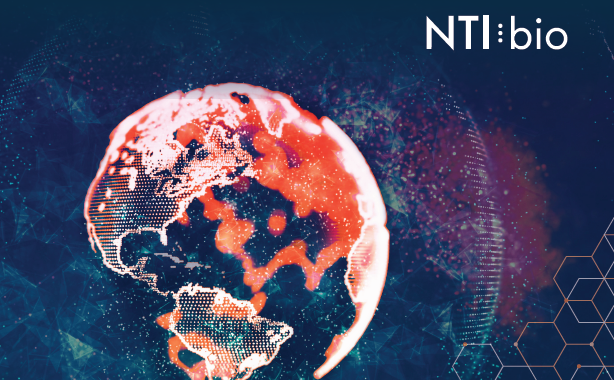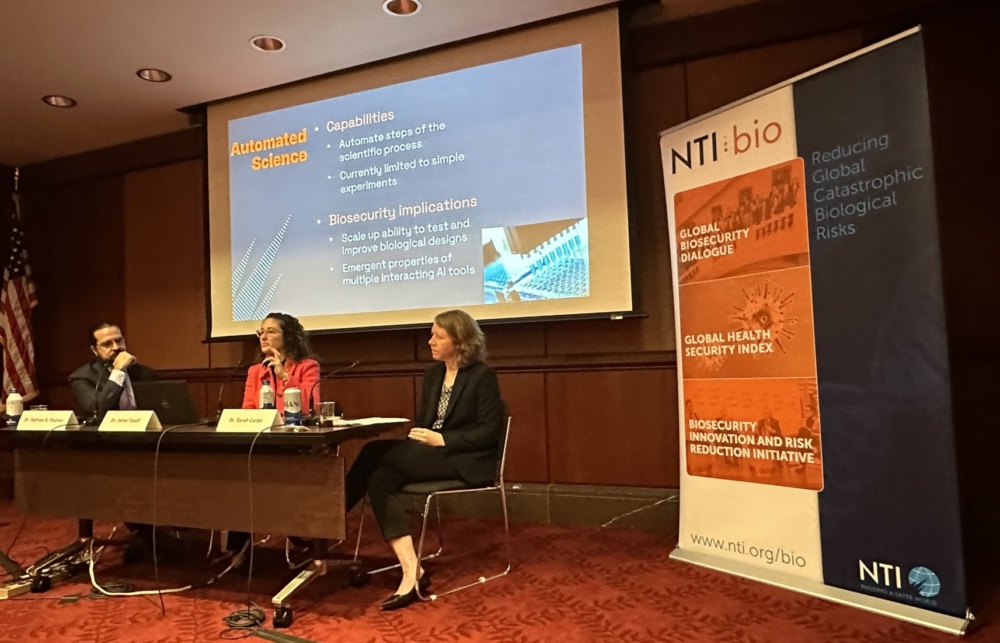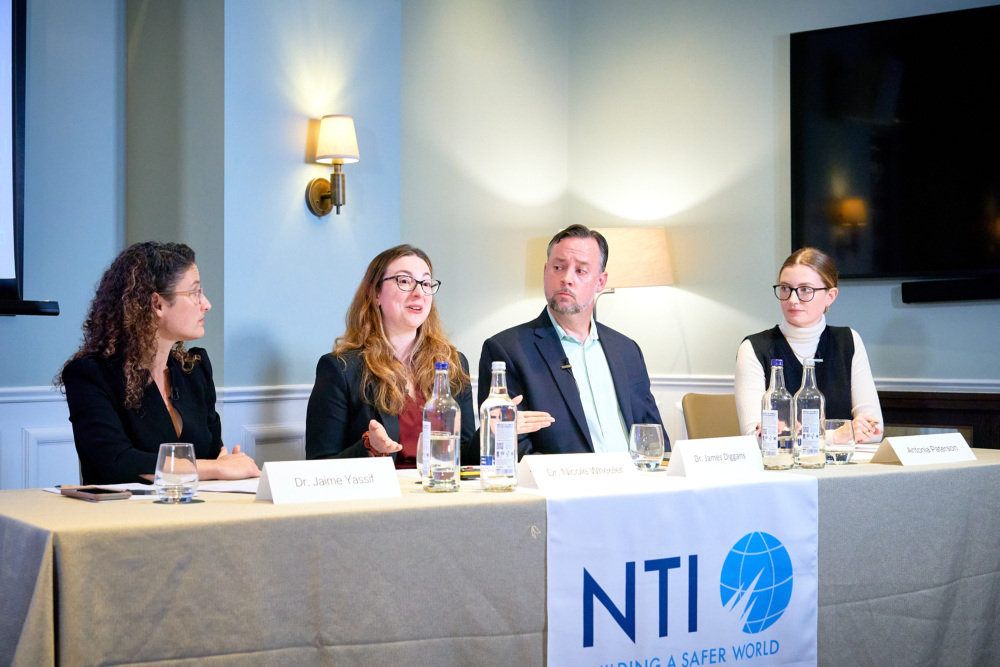Washington, DC – The international system for preventing and responding to high-consequence biological events has significant gaps that must be addressed. National and global leaders have a responsibility to take action now to prevent future biological events that could match the impact of the COVID-19 pandemic or potentially cause damage that is even more severe, according to a new report out today from the Nuclear Threat Initiative (NTI).
Preventing Global Catastrophic Biological Risks summarizes outcomes from a tabletop exercise that NTI convened with senior leaders in February 2020 at the Munich Security Conference, just as the new coronavirus was spreading globally. Although the exercise had been planned well in advance of the emergence of the COVID-19 pandemic, the fictional disease in the tabletop scenario swept the globe in a strikingly similar fashion, foreshadowing both the widespread impact and the paralyzing knock-on effects that the world is now experiencing.
“As NTI learned at the February exercise in Munich and as COVID-19 has demonstrated, the world’s extreme lack of preparedness sheds light on the critical importance of national leadership and effective, internationally coordinated efforts to marshal an effective response to this global crisis,” NTI Co-Chair and CEO Ernest J. Moniz, who chaired the February exercise, wrote in the Foreword to the report. “We have a responsibility to take action now to reduce emerging biological risks—before the next pandemic strikes.”
“Even as global leaders urgently respond to COVID-19, they must consider bold changes to the international biosecurity architecture to prevent an ever graver risk to the future of humanity,” the report says.
The exercise included more than a dozen current and former senior government officials, academics, and representatives from non-governmental organizations and the private sector from across Asia, Africa, Europe, and North America. Exercise participants were presented with a fictional scenario in which the world was battling a disease outbreak from a dangerous, apparently human-engineered pathogen, suspected to have originated in a fictional country which had a rapidly growing biotechnology sector.
Through a robust discussion that navigated the complex exercise scenario and the competing priorities of international stakeholders, the participants reached agreement regarding three major shortfalls in the global approach to biotechnology, biological weapons, and related risks:
- The accelerating development, global spread, and accessibility of bioscience and biotechnology have not been matched with the development of norms and governance mechanisms to manage associated risks of deliberate misuse or accidental release of engineered pathogens.
- The international community lacks robust transparency measures—and related systems of trust—to clarify the intentions and capabilities of bioscience research and development being conducted across the globe.
- Internationally, there is a critical gap in capacity to rapidly investigate high-consequence biological events of unknown origin.
Following the exercise, organizers developed a detailed set of recommendations, fully outlined in the report, based on findings from the discussion among exercise participants. Broadly, the recommendations fall into three categories and call on leaders to:
- Reduce biotechnology risks and implement global norms for life science research
- Enhance transparency for bioscience research to build trust and reduce uncertainty
- Develop capacity to rapidly investigate biological events of unknown origin.
“The exercise highlighted the growing biological risks in an increasingly interconnected world and the possibility that future pandemics—particularly those caused by engineered or synthesized biological agents—could have even more severe consequences than the devastation wrought by COVID-19,” said NTI | bio Senior Fellow and report author Jaime Yassif, Ph.D.
Moniz and Yassif joined Elhadj As Sy, co-chair of the Global Preparedness Monitoring Board, and Emily Leproust, Ph.D., CEO of Twist Bioscience, in a webinar to release the report at 11 am on Tuesday, September 29, on the margins of the ongoing 2020 United Nations General Assembly discussions. Watch the launch event here.
Since 2018, through senior leader tabletop exercises at the Munich Security Conference and the work of NTI’s Biosecurity Innovation and Risk Reduction Initiative, NTI | bio has convened international public and private sector stakeholders to create concrete, novel approaches to catalyze companies, researchers, funders, publishers, and other stakeholders to urgently identify and reduce biological risks.
Click here to read more about the report.
About NTI
NTI is a nonpartisan, nonprofit global security organization focused on reducing nuclear and biological threats imperiling humanity. Founded in 2001 by former U.S. Senator Sam Nunn and philanthropist Ted Turner, who continue to serve as co-chairs, NTI is guided by a prestigious international board of directors. Ernest J. Moniz serves as co-chair and chief executive officer; Joan Rohlfing is president and chief operating officer.
For more: www.nti.org/bio





